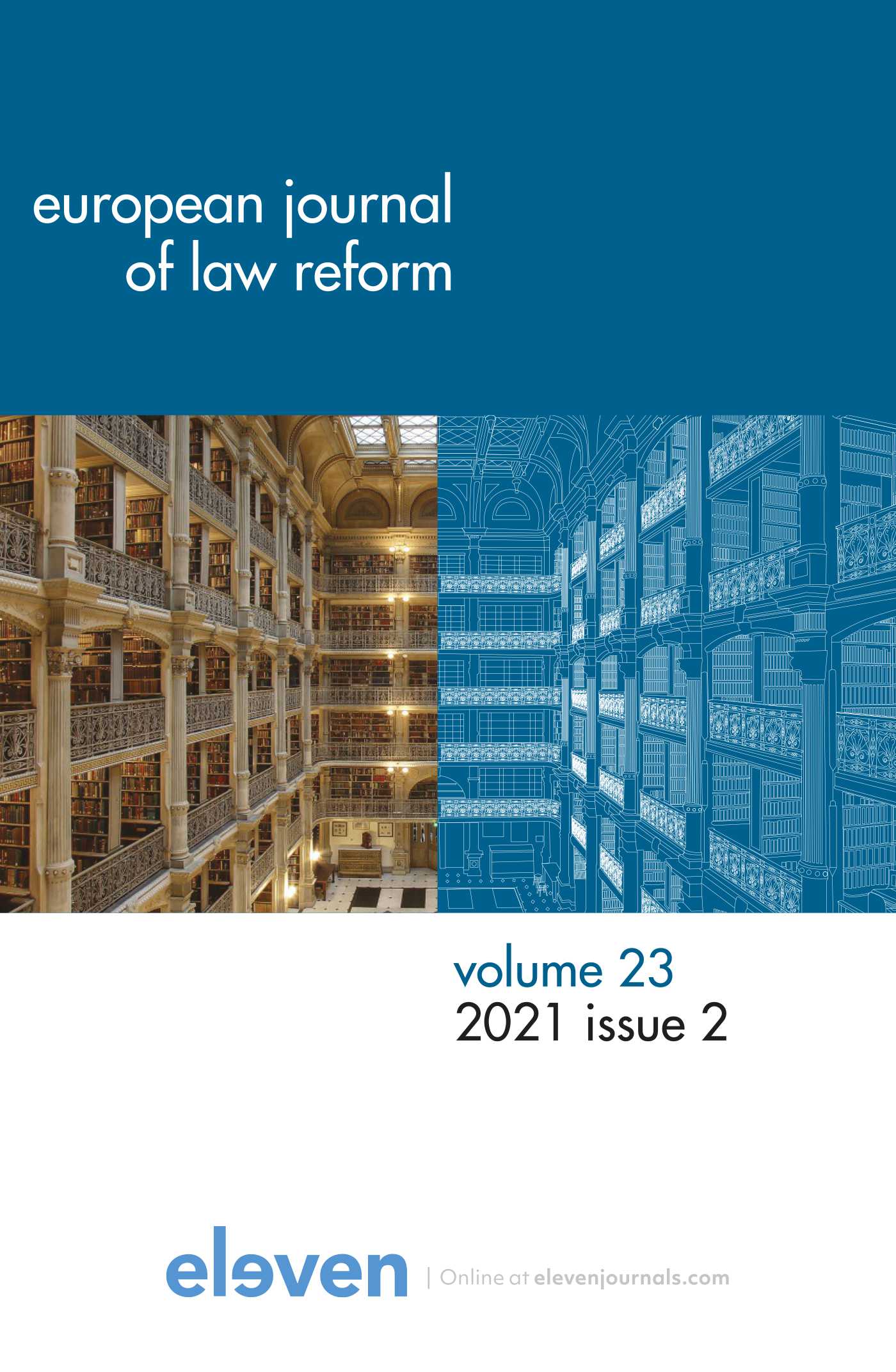|
Law, particularly enacted law, needs to be as simple and as accessible as possible, clear and concise and – perhaps above all – fit for the purposes of modern society. Laws passed in one decade may prove to be less than adequate for the needs of later generations because of changes in the social fabric or social mores or because of technological advance or economic challenge. Societies needs mechanisms for keeping law under review, particularly when governments are focused on introducing more law – sometimes layered on top of existing law – to fulfil electoral promises. The position is compounded in common law systems where the senior judiciary add to the legal corpus. |


European Journal of Law Reform
About this journalSubscribe to the email alerts for this journal here to receive notifications when a new issue is at your disposal.
| Article |
|
| Keywords | statute, common law, codification, consolidation, implementation |
| Authors | Jonathan Teasdale |
| AbstractAuthor's information |
| Article |
|
| Keywords | law revision, legislative scrutiny, codification, delegation |
| Authors | Fabio Pacini |
| AbstractAuthor's information |
|
The article offers an overview of the most ambitious operation of law revision ever attempted in Italy, retracing its phases in order to give an overview of some of the major constitutional questions it raised. The article will focus, in particular, on principles and criteria of the delegation to the Government – which represented the core of the entire operation – as well as on the use of emergency instruments for the same purpose. Two examples of errors or political use of law revision will also be analyzed. |
| Article |
|
| Keywords | codification, consolidation, law revision, legal restatement, legislative scrutiny |
| Authors | Enrico Albanesi |
| AbstractAuthor's information |
|
The aim of this article is to describe the mechanisms that are used in the civil law system to review existing legislation. The case study will be based on the Italian system. In the civil law system we are not familiar with the concept of law reform, in the sense used in the common law system, because there is no law reform agency in the civil law world. The mechanisms used to review the existing law in civil law systems are: codification, consolidation, repeal, law revision and legal restatement. To understand how the mechanisms used to review existing legislation work in Italy, an overview of the Italian law-making and drafting processes will be carried out here, underlying the bad impact that the Italian equal bicameralism has on the quality of legislation and also on the mechanisms to review existing legislation. After this, the article will focus on the specific tools that are used in Italy for codification and consolidation (decreti legislativi), for law revision (the so-called taglia-leggi) and for legal restatement (examining the role of the Consiglio di Stato). Particular attention will also be paid to the parliamentary scrutiny on the quality of legislation. Finally, the article will focus on the constitutional amendment process Italy carried out in 2014-2016 and that was expected to fundamentally change the Italian law-making process, superseding the equal bicameralism arrangement (a referendum on this was held on 4 December 2016, and the reform was rejected by the Italian people). |
| Article |
|
| Keywords | EU, legislation, accessibility, updating |
| Authors | William Robinson |
| AbstractAuthor's information |
|
EU legislation plays a key role in filling in the gaps in the framework created by the EU Treaties. The body of EU legislation known as the acquis has grown piecemeal over 60 years to a confused and confusing patchwork of over 100,000 pages. There is an urgent need for a more coherent approach to updating, condensing and revising that legislation to ensure that it is readily accessible. New mechanisms should be established for those tasks, or else the existing mechanisms should be enhanced and exploited to the full. |
| Article |
|
| Keywords | anti-discrimination law, Serbian Law, harmonization, right to a personal name, European Court of Justice |
| Authors | Olga Jović-Prlainović and Jelena Belović |
| AbstractAuthor's information |
|
In modern society, the right to equality is not just a universal moral obligation; it is rather an expression of a generally accepted rule in international law that all people have equal rights, independently of differences based on innate or acquired personal characteristics. Prohibition of discrimination is a civilization heritage, and it is determined by systematically overcoming prejudices and stereotypes as key factors of discrimination, where educational institutions, media, public authority, and non-governmental organizations all have a vital role. Tackling with discrimination is not just the application of rules regulated by law and taking necessary measures towards social groups which are in an unequal position, but it is also a continuous development of tolerance when it comes to ethnicity, religion, gender, minorities, as well as acceptance of the existing interpersonal differences. It is well known that the area of West Balkans is often a breeding ground where stereotypes and prejudices thrive for decades. The strategic aim of the Republic of Serbia is membership in the European Union, and so nation-wide law regulation concerning this matter is directed at complying with the European Union Law since the prohibition of discrimination is one of the pillars of the European Union Law. In this article, the influence of the European Union Law and practical measures taken by the European Court of Human Rights in order to prohibit discrimination in a specific international and private domain are analyzed. |

 Issue 4
Issue 4